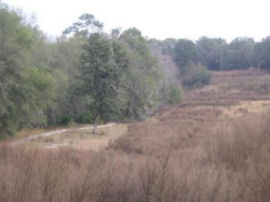GOLF COURSE DILEMMA?

Tell me if this sounds familiar:
Rounds and revenues are down at your residential neighborhood golf course. The bank is closing in and the owner threatens to throw away the keys and walk away. The worry, real or not, is that the economic integrity of the entire neighborhood could be at stake if the golf course closes. However, fewer than one in five who live there actually play golf.
So, the Battle Lines are Drawn
The golfers on one side don't want to lose their golf course and prepare to convince their neighbors they need to pony up to help save it. The non-golfers believe the golfer's warning about losing the golf course and the negative impact on property values is based purely on selfish reasons. Generally, the golfers are quite right with their argument. However, the non-golfers in the neighborhood have a five-to-one ratio in their favor and become a daunting foe. Non-golfers hate to pay any taxes to support "A bunch of idiots who chase a little white ball around a field and swear at it!"
So, the fun begins between two factions: The people who play golf and live there; and The people who don't play golf and live there.
THE GOLF COURSE SAVING SOLUTION
Let everyone who owns a home in the golf course development pay into a fund to support the golf course? Not so fast!
The people who play golf want the entire neighborhood to chip in to save the golf course. The golfer's argument is that a failed golf course will have a negative impact on the value of the entire neighborhood. Paying a fee through the home owner's association (HOA) sufficient to own and maintain the golf course is the only sensible answer. They might call the contribution more or less an insurance premium to support the value of their homes.
Various articles about home values - especially with regard to open space - indicate houses have an historical higher value than houses without nearby permanent open space. In fact, houses located near open space that still retains its development rights do not fair as well as houses where the open land can never be developed. So, the first research each side of this dilemma needs undertake is to determine what other use is permitted on the golf course lands. It is not a good result for either side - golfer or not - if the land is zoned for development, as the loss of open space will (historically) have a negative effect on property values and the quality of life.
The non-golfers tend to dispute the golfer's claim, or the older residents couldn't care less (like in older neighborhoods in Florida). In my experience, the older the non-golfer, the less they care about the fortunes of the golf course. Of course, older folks are usually retired and on fixed incomes. They will argue against any new tax - especially to pay for golfers recreation. Many older folks don't really care about their house values as they would have forty-years ago, and that's probably quite fair. For instance, picture this:
The little old lady barely keeping here house paid up and tidy. She gets around on a walker. Her government checks come in and she budgets every penny. Then this guy in the gaudy pants and pink shirt asks to her to help pay for his golf course. Luckily she's on the 5-to-1 side.
THE COMMITTEES
Committees are formed and a line in the sand separates the golfers from the non-golfers. Other sub-battles go on between the banker and the course owners, and the on-course lot owners and the off-course owners.
Golf Rescues, the team of Mike Kahn, Bill McIntosh, and Cameron White have the knowledge and experience to help solve the dilemma.
Me, Mike Kahn, I'm a golf course business person, but I also understand how the big picture affects everyone who owns property in a golf course community. I've had a home on a golf course and I knew my investment will tarnish if the 15th fairway I could see becames a weed patch. I saw the results when I was GM at The Ravines Golf Resort at Middleburg, Florida (Jacksonville).
Before I arrived to manage Ravines the former owners had already closed a neat little par-3 course, which was surrounded by condo-style homes. The first thing that happens is the invasion of weeds. There were all kinds of very tall weeds. As the grass and weeds grew high, undesirable vermin began to take over. The area is invaded by snakes, skunks, rats, coyotes, fire ants, and other varmints. Nothing is green either. It's all shades of brown and gray. Meanwhile, neighbors you could wave at across the fairways became hidden behind seven-foot-tall weeds.
I spoke to some of the residents who told me they could never sell their properties with that mess outside their door.
So what's a property worth if nobody will buy it?
That's my point.
WHAT IS THE SOLUTION?
Even though hundreds, maybe thousands of golf courses are facing closure, they are all a little different - especially residential golf courses. Believe-it-or-not, I think many deserve to close, because they were ill conceived and in some cases, were used to dupe people into buying their property. However, many must be saved to avoid a community financial disaster.
The Golf Rescues Team can help communities sort it out.
If what you read above sounds familiar, call me: 941-739-3990, or write me at: mike@golfmak.com.